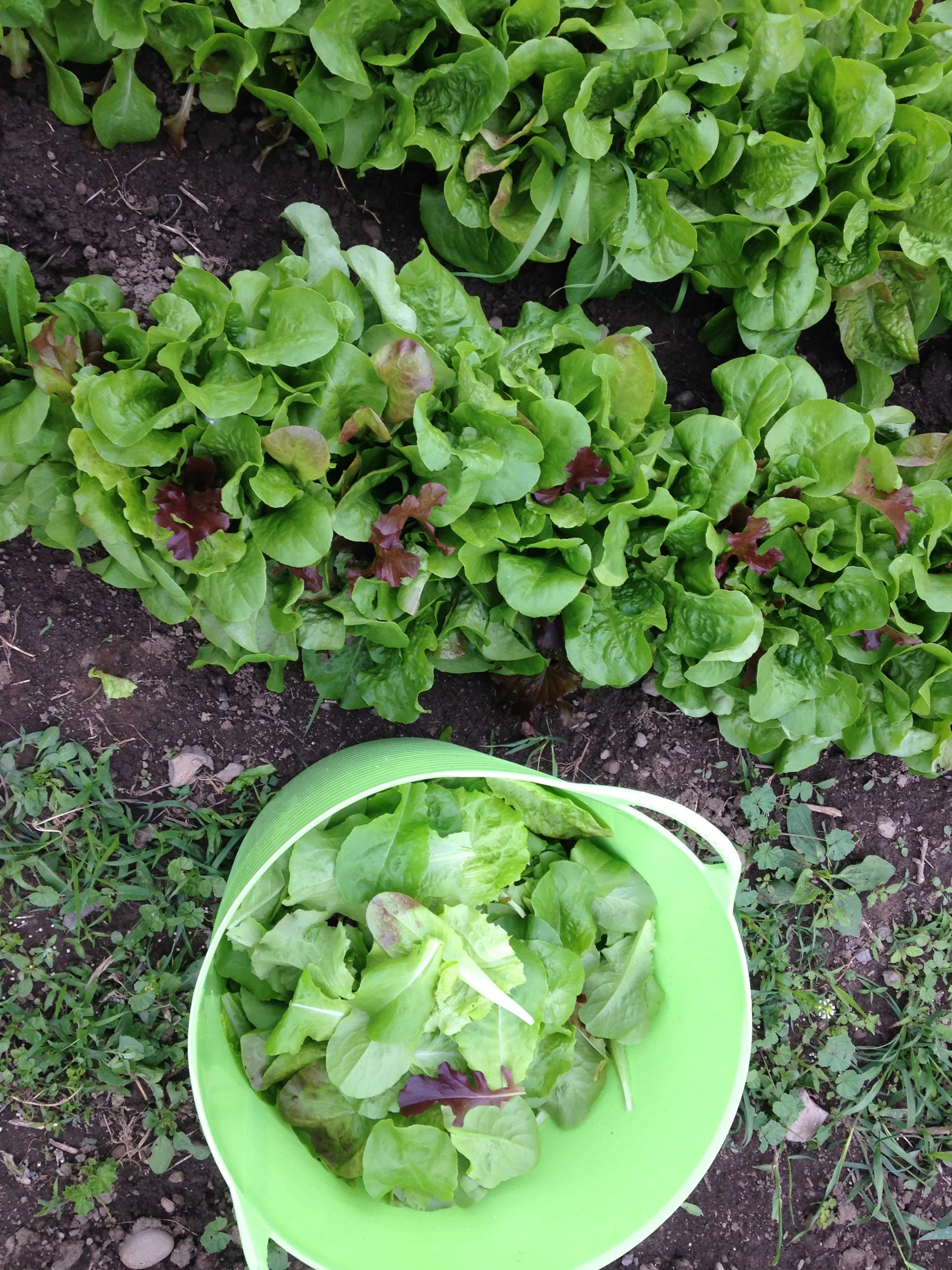We grow the soil primarily, feeding the worms who, in turn, feed us.
We grow all our crops using our signature Non-Certified OG practices. We base our standards on our knowledge of chemistry. We know that in some ways we are more strict than most certifying agencies, and do not want to lose the limited time we have to tedious record keeping. The largest issue with conventional farming is the inhospitable "leftovers" that hang out in the soil disrupting the natural flora and fauna. The primary contaminant is salt. Salts come in many formulas, not just your standard table salt. As you might have guessed, salt is not a favorite food of earthworms, thus most conventional farms lack a healthy population of earthworms. There are other beneficial organisms, but if you have the worms they are the best indicator of healthy soil.
We grow our vegetables on a relatively small 2 acres we have been intensively farming for the past 9 seasons, expanding a little on the way. Considering the small space, we still manage to rotate our crops to benefit the soil and plants even more, and use cover crops to choke out weeds, add organic matter or hold the excess fertility in the soil. Our farm is on a limestone escarpment which gives us very basic soil, and has a fair bit of salt naturally. We were clearly under a large body of water in the past, the rocks have many very interesting fossils.
We do amend the soil with composted animal manures, ash, minerals from rock, compost, and some steamed animal bones! Yum. But don't worry, the worms break it all down to castings, which is their poo! It's essential with as much fruit and greens we remove from our beds that we replace the fertility for the worms and future veg.
We use only OMRI approved sprays (Organic Materials Research Institute fungicides and insecticides) as minimally as possible. We also use row cover for insect protection, which we like to reuse as much as possible. We are willing to pay a little more upfront for heavier row covers and plastics for irrigation and weed control so as to control waste as much as possible. For example, we are still using the same woven ground cover for around squash since we started nine years ago! Ditto drip tape, for irrigation.
